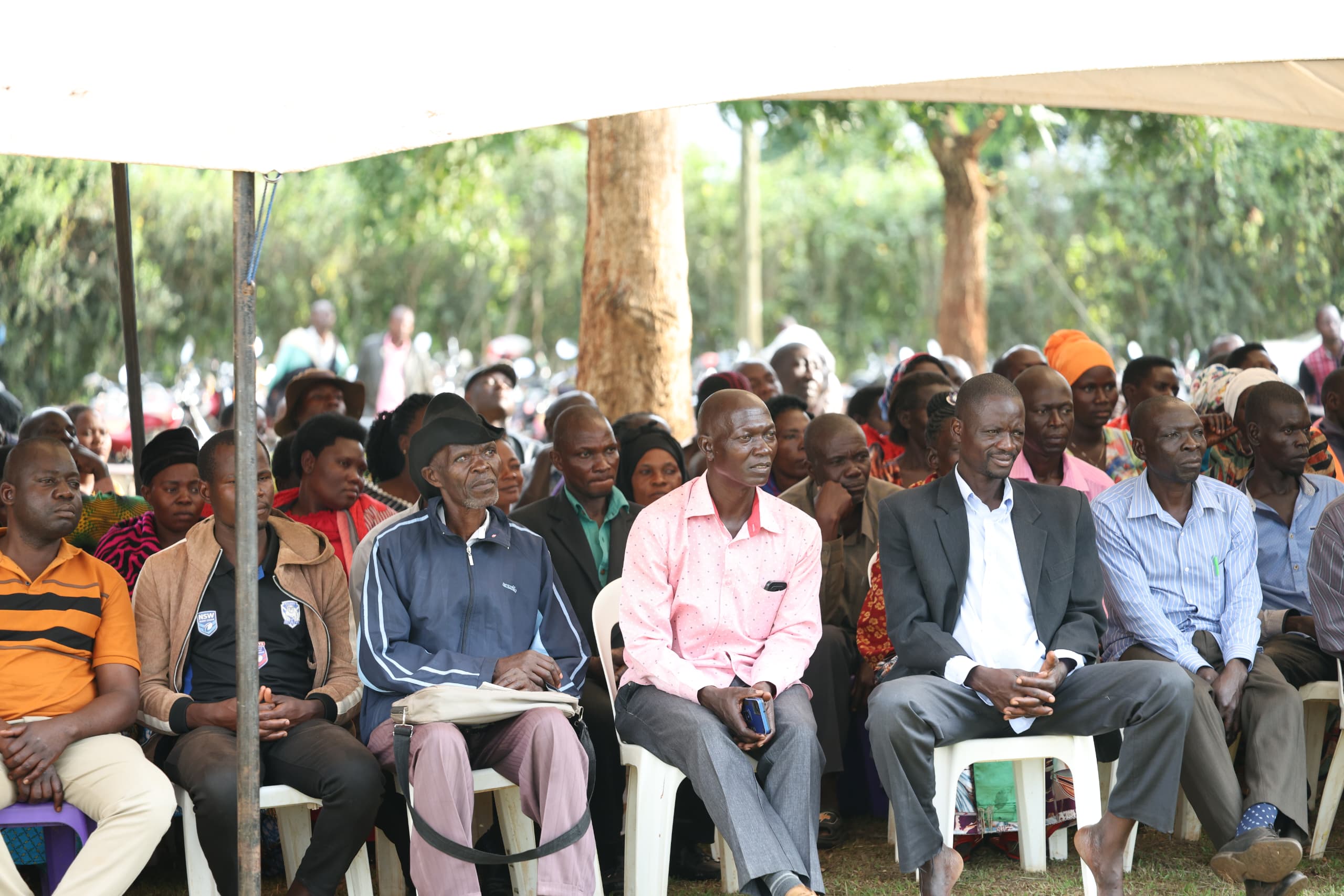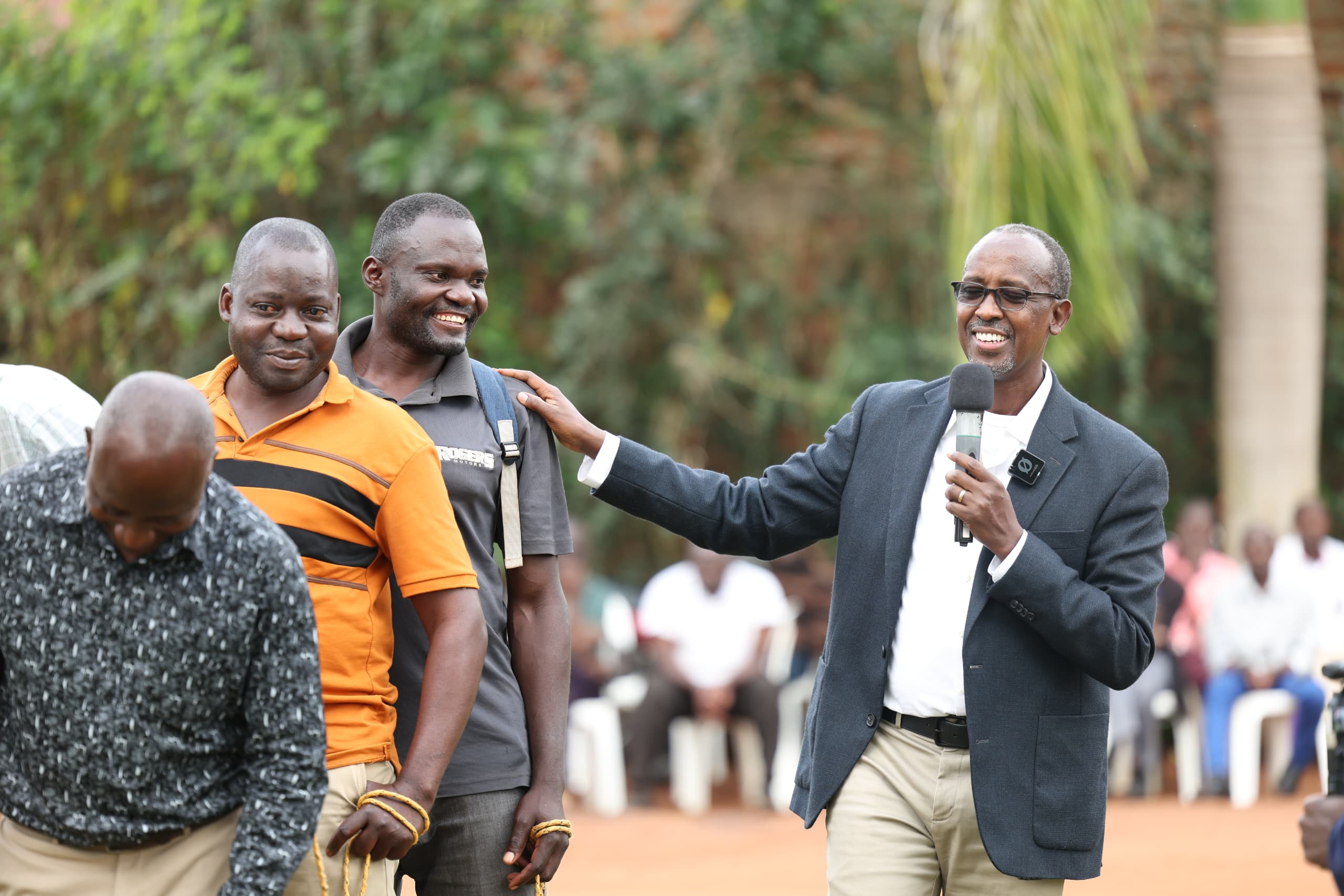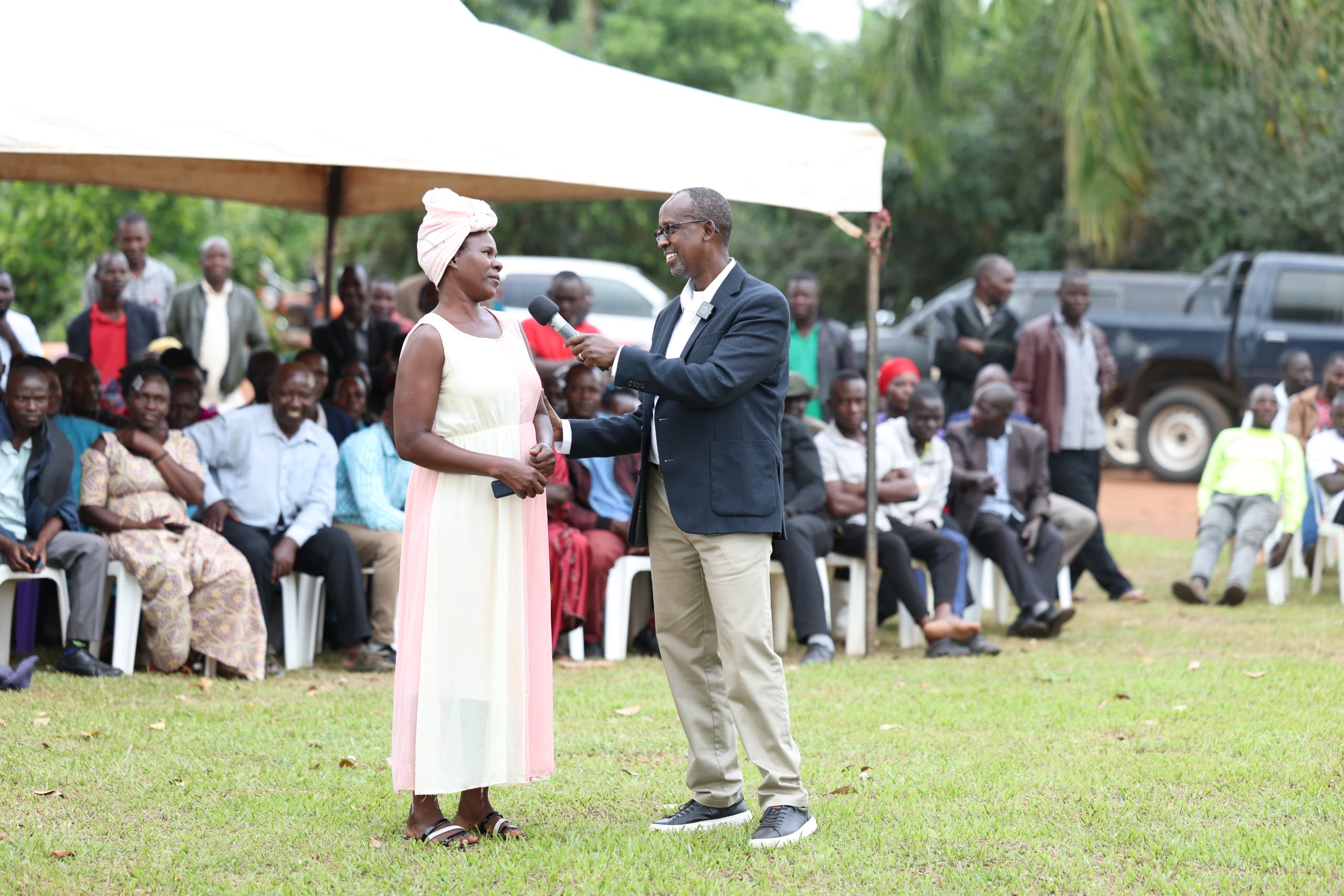Busoga farmers rallied on forming product-based co-operatives to boost exports
“We need conscious discipline, not forced discipline,” Rwabwogo said. “Let’s stop fighting over politics and focus on productivity, unity, and good leadership. Good leadership isn’t tribal—it’s focused on income generation.”
Led by PACEID Chairperson Odrek Rwabwogo, the event emphasised productivity, quality control, and value addition as critical ingredients for building sustainable and profitable exports.
By John Masaba
Journalists @New Vision
KAMULI - The Presidential Advisory Committee on Exports and Industrial Development (PACEID) has held a hands-on export-readiness training in Kamuli district aimed at equipping farmers, processors, and transporters with practical skills to tap into Uganda’s growing export market.
The training, hosted at the home of Thomas Kategere in Kabukye Village, Kamuli municipality on July 14, 2025, brought together stakeholders across key agricultural value chains, especially coffee, dairy and cocoa.
Participants included nursery operators, processors, transporters, store owners, and farmers.
Led by PACEID Chairperson Odrek Rwabwogo, the event emphasised productivity, quality control, and value addition as critical ingredients for building sustainable and profitable exports.
Rwabwogo urged participants to organise themselves into product-based cooperatives, which he said would give them stronger bargaining power and make them more competitive in global markets.
Rwabwogo urged participants to organise themselves into product-based cooperatives, which he said would give them stronger bargaining power and make them more competitive in global markets.
“We need conscious discipline, not forced discipline,” Rwabwogo said. “Let’s stop fighting over politics and focus on productivity, unity, and good leadership. Good leadership isn’t tribal—it’s focused on income generation.”
He explained that economic transformation—alongside justice, security, and social services—is one of the four pillars of nation-building, and the one PACEID is directly working to strengthen.
Rwabwogo also outlined the committee’s four operational pillars: Market Access through Research, Export Standards & Compliance, Export Infrastructure, and Export Financing
Addressing concerns from farmers about falling coffee prices, Rwabwogo called for a shift in mindset and strategy. He encouraged domestic consumption and value addition to create internal demand for Ugandan products.
“We must roast and drink our own coffee to create a culture of internal consumption,” he said. “This is how we build resilience and reduce vulnerability to global market fluctuations.”

Practical demonstrations
The training session featured live demonstrations to equip farmers with the latest techniques in nursery management and animal husbandry.
Kayemba John, a coffee nursery operator with the National Agricultural Research Organisation (NARO)–Kawanda, led a session on best practices in coffee cultivation. He emphasised proper spacing, cutting techniques, and plant care.
“Care for coffee like a child,” Kayemba told the participants. “A well-tended coffee tree can yield up to 20kg twice a year. If we focus on quality at the nursery level, Uganda can compete globally.”
On the dairy side, Fred Bamwiine, a smallholder dairy farmer, demonstrated the potential of urban farming.
“With just 10 decimals of land in Kyanja, I keep 30 cows and produce 350 litres of milk monthly,” he said. “One cow is enough to start. Dairy offers over five income streams—from milk, food, manure, fertiliser, and even tourism.”

Community response
While the training was warmly received, farmers raised concerns over limited market access, lack of affordable financing, and poor on-farm value addition—issues that continue to hinder Uganda’s competitiveness in global markets.
Rwabwogo encouraged farmers to address these bottlenecks collectively through cooperatives, which he said would enable them to access financing, market information, and export opportunities more effectively.
He also called on district leadership and institutions to actively support grassroots mobilisation for export readiness, noting that PACEID’s approach depends on strong partnerships at the local level.
The session concluded with Rwabwogo planting a mango tree on the demonstration farm—a symbolic gesture representing growth, sustainability, and long-term investment in Uganda’s agriculture sector. He also praised host Thomas Kategere for his efforts in promoting cocoa and coffee farming in the region.
The event was attended by several local leaders, including the Resident District Commissioner (RDC), District Internal Security Officer (DISO), and religious leaders—an indication of growing institutional support for Uganda’s unified export agenda.
